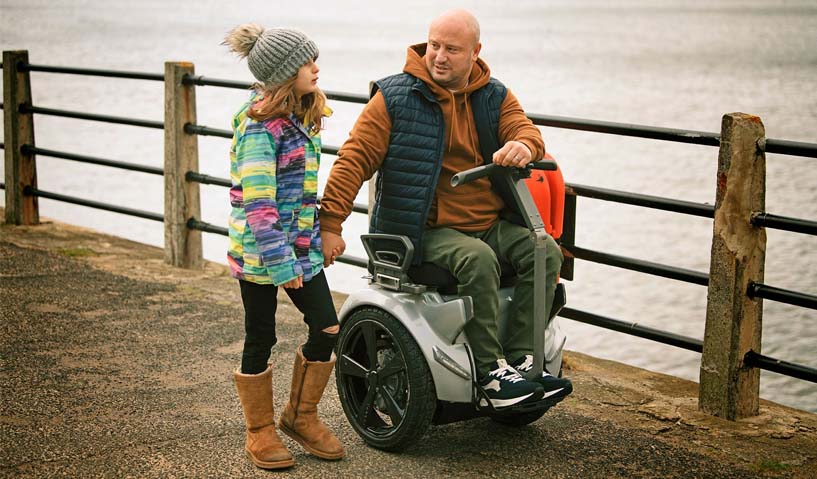Living With Paralysis
If you have recently suffered a spinal cord injury and are trying to understand what this means for your future, the following information will help with initial anxieties you may have around living with paralysis due to a spinal cord injury.

Life after a spinal cord injury: The beginning
Life after a spinal cord injury can seem like an overwhelming time. However, with the help of your healthcare team, you will get through it as they help prepare you for living with a spinal cord injury.
Initially, your team will be busy assessing the extent of your injury and managing your pain. You will have many examinations and diagnostic tests. You may also be given anti-inflammatory medication, pain medication and something to prevent blood clots from forming.
It’s not unusual to spend the first few days in an intensive care unit (ICU) whilst X-rays and scans are administered to help doctors determine your level of injury and whether there is damage in any other part of your body.
The location of the injury on the spinal column plays a huge role in determining the seriousness and level of disability one may experience. Cervical spinal cord injuries – or those occurring near the neck – are the most severe, often resulting in quadriplegia.
As injuries move down the spine, they generally become less life-threatening and less likely to permanently rob you of movement. Likewise, whether your spinal cord injury is complete – where the spinal cord is severed or fully compressed – or incomplete – where the spinal cord is not fully compressed – will influence the level of your spinal cord injury recovery.
How does a spinal cord injury affect daily life?
Spinal paralysis symptoms
There is a whole range of physical spinal paralysis symptoms you may experience with paralysis due to a spinal injury, depending on the location and nature of your injury. These include but are not limited to:
- Difficulty controlling bladder or bowels
- Difficulty with sexual function, arousal and fertility
- Pain and/or phantom pain at the site of the injury
- Tingling sensations
- Gastrointestinal issues
- Difficulty breathing without assistance
The mental impact of spinal cord injuries
The mental impact of a spinal cord is challenging and the injury can affect your mental health and lead to depression or anxiety. Even medication taken to assist you in living with a spinal cord injury can change the way your brain processes certain neurotransmitters, making you more susceptible to mental illness. It is for these reasons that emotional and psychological support groups are so very important to maintaining your mental health when living with paralysis.
Help & support for living with spinal cord paralysis
Between your healthcare team and physiotherapist, you can count on getting the help and support you need for living with paralysis. Your injury level will dictate whether you need a power or manual wheelchair. The more extensive your injury, the more equipment and assistive devices may be required. You may need assistance with daily living tasks as well, such as bowel and bladder care, positioning, transfers, dressing and bathing or showering.
Your healthcare team will ensure that you get the help you need whilst you’re in the hospital and will assist in your rehabilitation. When you’re ready to leave rehab, you’ll want to make sure your home is ready for you. Sometimes, a visiting therapist can help you make small, meaningful changes to your home beyond ramps and handrails.
You will also be supported and advised on SCI exercise and nutrition, including wheelchair exercises to do alone and wheelchair sports you can play as part of a team.
Your exercise programme will help you adjust to the new activities associated with being in a wheelchair. It will also teach you proper techniques that will keep you safe and help prevent further injury. Your programme will be tailored to your specific needs.
For more help and support for life after paralysis visit Navigator, our dedicated spinal cord injury support service. Once registered with Navigator you’ll receive one-to-one support from SCI experts via live chat, telephone, or email. Plus, free and discreet worldwide delivery of bowel and bladder management medical supplies, from Fittleworth.
